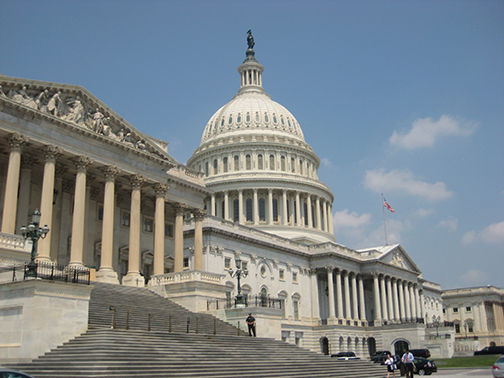This is the time of year when our political leaders give their assessments about where we stand or the “state of things.”
Last week, Governor Brown delivered his “state of the state” report for California. And as I write, President Obama is preparing to deliver his State of the Union address.
It is clear that we are living in changing times. Our politics, economics and culture — even our morality and our ideas about human nature and the meaning of life — seem to be in a state of transition.
As Catholic citizens, we have a duty to be engaged in the ongoing political and cultural conversations about where we’re at and where we’re heading as a nation.
The challenge we have, living in this highly secularized and “politicized” society, is to really think and really live as Catholics. We have to struggle against the temptation of seeing things only in political categories of “left” vs. “right” or “liberal” vs. “conservative.” As Catholics, ourpositions on issues should be rooted in the principles we find in the Gospel and in the Church’s social teachings.
This is easier to say than it is to do. But our society urgently needs the Church’s alternative vision.
The Church’s social teaching gives us a beautiful vision for human life and human society. In the Catholic vision, society and government exist to serve the human person — who is more than the sum of his or her physical desires and needs; who is a creature of body and soul, made by God and for God, with a transcendent destiny.
In the Catholic vision, government has a positive role. So do the free enterprise system and the basic civic institutions of a free society — churches, charities, the family, volunteer organizations.
Our Catholic faith calls us to seek a society where people are free to live out their religious beliefs and pursue their aspirations. We are called to work for an economy where the goods of creation are widely shared and everyone has what they need to lead a dignified life.
We are called to work for a culture that promotes marriage, the family, and the formation of children; a culture that promotes a vision of life guided by moral virtues, generosity, selfless love and the higher values of beauty and truth.
And we should be seeking a government that promotes fairness, opportunity and justice; and policies that welcome the unborn and the immigrant and protect and care for the sick, the aged and the hurting.
This is the noble vision that is detailed in the Compendium of the Catholic Social Doctrine of the Church, which I urge every one to read and study.
Of course, our challenge is how to apply these principles to our own realities.
Right now in our society, we are increasingly aware of growing numbers of our brothers and sisters who are living in poverty.
The poverty of our times has many sad faces. It is women and men who spend hours every day riding the bus to get to jobs that don’t pay enough to feed their families. It is people who are out of work and have had no work for a long time. For too many in our society, the face of poverty is the face of a little boy or a little girl.
Our politicians have started talking a lot about “economic inequality.” And it is true that our wealthiest neighbors are getting wealthier while our poorest neighbors are finding it harder to break out of poverty and into the middle class. What’s causing this gap to widen between the rich and the poor is hard to understand. There are no simple answers and no simple solutions.
As Catholics, we need to be involved in these conversations about how to grow the middle class and help people out of poverty. And we need to be involved, not as liberals or conservatives, but as Catholics. We need to keep studying these issues and praying about them from the perspective of the Gospel and our social teaching.
So this week, let’s pray for one another and let’s pray for our state and our nation. Let’s commit ourselves to getting more involved in our parishes, our neighborhoods and communities.
And may our Blessed Mother Mary intercede for us, that we might all have hearts open to the needs of the poor and the vulnerable in our society.
Archbishop Gomez’s book, “Immigration and the Next America,” is available at the Cathedral Gift Shop (www.olacathedralgifts.com/immigrationandthenextamericarenewingthesoulofournation.aspx). Follow him at www.facebook.com/ArchbishopGomez.

